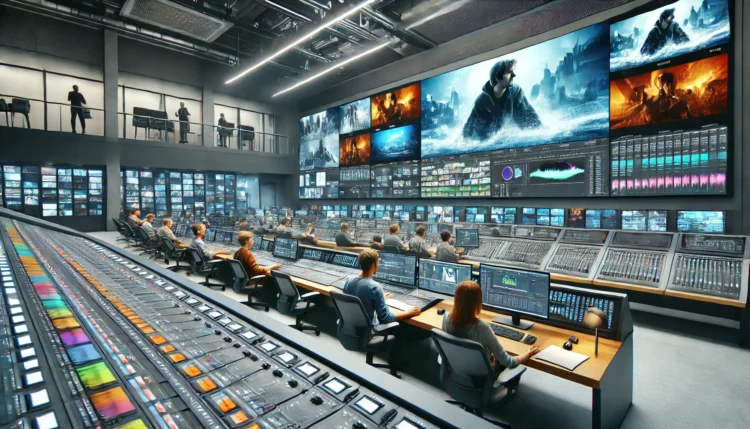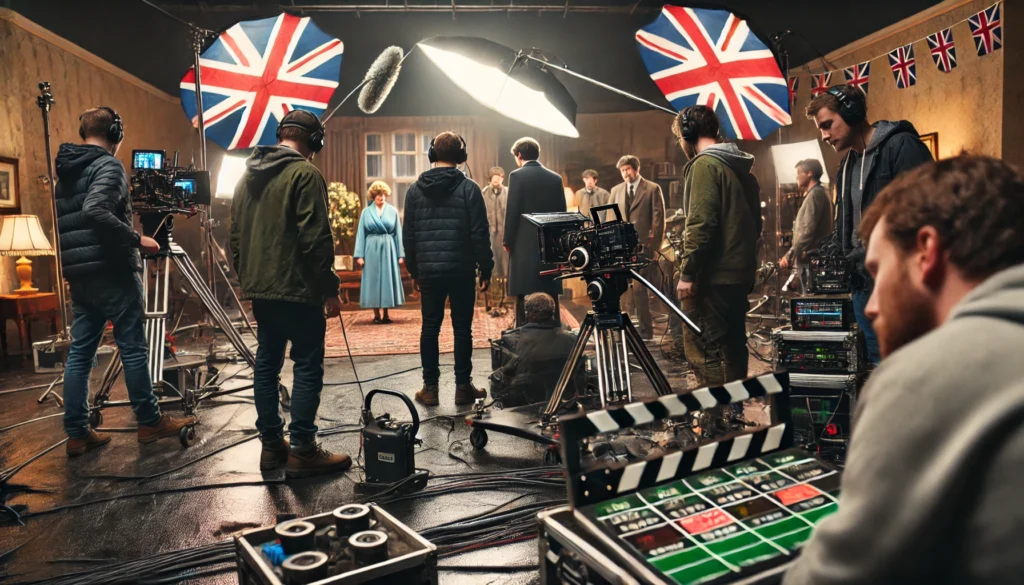
How to Produce a UK Drama
How to Produce a UK Drama: From Script to Screen
Introduction
The UK drama industry is known for producing some of the most compelling and high-quality television content worldwide. From iconic period dramas like Downton Abbey to gritty crime series like Peaky Blinders, British dramas continue to captivate global audiences.
But what goes into producing a UK drama from script to screen? This guide will take you through each step of the TV production process, from writing the script to post-production and distribution.
Step 1: Developing the Concept & Writing the Script
Every drama begins with a strong concept. Whether it’s a historical period piece, crime thriller, or contemporary drama, a well-crafted story is essential.
1. Choosing a Genre & Theme
Decide whether the drama will be historical, crime, romance, fantasy, or social realism.
UK dramas often focus on strong character development and thought-provoking themes.
2. Writing the Script
Most UK dramas follow the three-act structure:
Act 1: Introduce characters and conflict.
Act 2: Develop tension and drama.
Act 3: Resolve conflicts and deliver emotional payoffs.
Popular scriptwriting software used in UK productions includes:
Final Draft (industry standard)
Celtx (cloud-based collaboration)
Scrivener (for research-heavy dramas)
3. Script Development & Editing
Scripts are rewritten multiple times to improve dialogue, pacing, and structure.
Script editors work with writers to ensure consistency and logical flow.
Once the script is finalized, the project moves into pre-production.

Step 2: Pre-Production – Assembling the Team & Planning
Pre-production is where everything is set in motion before filming begins.
1. Securing Funding & Budgeting
Many UK dramas are funded through:
BBC, ITV, Channel 4, Sky (commissioned dramas)
Film and TV tax relief schemes
Private investors and production grants
2. Hiring the Cast & Crew
A casting director selects actors based on script requirements.
Key crew members include:
Director – Oversees artistic vision.
Producers – Manage finances and logistics.
Director of Photography (DOP) – Handles cinematography.
Production Designer – Creates the visual aesthetic.
3. Location Scouting & Set Design
Filming locations are chosen based on story setting. Popular UK drama locations include:
London (Urban dramas, political thrillers)
Manchester & Liverpool (Crime and social dramas)
Scottish Highlands & Wales (Historical and fantasy dramas)
Some productions use studio sets for better control over lighting and weather conditions.
4. Costumes, Props, and Set Dressing
Period dramas require extensive costume and set design to maintain historical accuracy.
Contemporary dramas focus on realistic and immersive set designs.
Once pre-production is complete, the project moves to the filming phase.
Step 3: Production – Filming the Drama
The production phase is where the story comes to life on screen.
1. Filming & Cinematography
UK dramas often use cinematic, high-production-value visuals.
Directors work closely with the DOP and camera operators to achieve the desired aesthetic.
Filming can take place on-location or in a studio, depending on the production’s needs.
2. Sound Recording & Foley Effects
High-quality audio recording ensures crisp dialogue and immersive sound design.
Foley artists create realistic sound effects (e.g., footsteps, doors creaking).
3. Managing the Production Schedule
Filming schedules are tight, often lasting 6-12 weeks depending on the project’s scale.
The assistant director (AD) ensures production stays on track.
Once all footage is captured, the drama enters post-production.

Step 4: Post-Production – Editing & Finalizing
Post-production is where raw footage is transformed into a polished drama.
1. Video Editing & Color Grading
Editors use Adobe Premiere Pro, Final Cut Pro, and Avid Media Composer to cut scenes and refine storytelling.
Colorists use DaVinci Resolve for cinematic color grading.
2. Sound Mixing & Music Score
Sound engineers balance dialogue, background music, and ambient sounds.
Original scores are often composed to enhance the drama’s emotional impact.
3. Visual Effects (VFX) & CGI Enhancements
VFX is used for historical reconstructions, action sequences, and fantasy elements.
Studios like Framestore and DNEG handle high-end VFX for UK productions.
Once editing is complete, the drama is ready for distribution.
Step 5: Distribution – Releasing the Drama to Audiences
Once the drama is finished, it needs to reach the right audience.
1. Broadcasting & Streaming Platforms
UK dramas are released on:
BBC, ITV, Channel 4, Sky Atlantic (traditional TV)
Netflix, Amazon Prime, Disney+ (global streaming)
2. Marketing & Promotion
Trailers, posters, and social media campaigns generate hype.
Press interviews and festival screenings help build anticipation.
The Future of UK Drama Production
1. The Rise of Streaming Platforms
More UK dramas are being produced exclusively for digital platforms.
High-budget series are being made for Netflix and Amazon Prime.
2. AI & Virtual Production Technologies
AI is being used for script analysis, editing automation, and CGI improvements.
LED volume stages are replacing green screens for real-time virtual environments.
3. Focus on Diverse Storytelling
UK dramas are featuring more underrepresented voices and stories.
Conclusion
Producing a UK drama requires meticulous planning, creativity, and teamwork. From scriptwriting and casting to filming and post-production, each step plays a crucial role in delivering high-quality television content.
With technological advancements and global streaming expansion, the UK drama industry is set to grow even further, continuing its legacy of producing world-class storytelling.
FAQs: Producing a UK Drama
1. What makes UK dramas different from American TV shows?
UK dramas focus on character depth, shorter seasons, and strong storytelling, while US shows often prioritize long-running formats and commercial appeal.
2. How long does it take to produce a UK drama?
The entire process, from script development to broadcast, typically takes 6 months to 2 years, depending on the scale.
3. What are the biggest UK drama production companies?
Major UK production companies include BBC Studios, ITV Studios, Working Title, and Left Bank Pictures.
4. What software is used in UK drama post-production?
Editing and VFX software includes Adobe Premiere Pro, Avid Media Composer, and DaVinci Resolve.
5. How do UK dramas get funding?
Funding comes from broadcasters (BBC, ITV), production grants, tax incentives, and international co-productions.